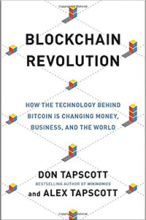Editor's note: This story's Twitter giveaway has ended.
Today, both business leaders and CIOs need to be all-around leaders, capable of high-level strategy, smart about digital transformation, and close to customers. Above all, you must inspire and motivate the people who work for you. We've picked out 10 books that will help you do that better – and make for enjoyable reading.
1. Machine, Platform, Crowd: Harnessing Our Digital Future

By Andrew McAfee and Erik Brynjolfsson
Book Description: "MIT's Andrew McAfee and Erik Brynjolfsson--authors of the bestseller The Second Machine Age--know what it takes to master the digital-powered shift to today's world. We must integrate machine learning, favor platforms over products, and learn to heed the wisdom of the crowd. The authors deliver both a penetrating analysis of a new world and a toolkit for thriving in it."
Why you should read it: To effect digital transformation, you need to be fully steeped in the workings of machine learning and AI. McAfee and Brynjolfsson offer a blueprint for understanding how that world works now, and how you can adapt your organization.
2. Blockchain Revolution: How the Technology Behind Bitcoin Is Changing Money, Business, and the World

By Don Tapscott and Alex Tapscott
Book Description: "Experts believe blockchain will have a bigger effect on the world economy than solar power or artificial intelligence. Blockchain is the ingeniously simple, revolutionary protocol that allows transactions to be simultaneously anonymous and secure by maintaining a tamper-proof public ledger of value. It's the technology that drives bitcoin and other digital currencies, but the blockchain framework has the potential to go far beyond these and create an unalterable and open-to-all record of virtually everything we care about. If that's not enough to convince you of blockchain's power, consider that 42 financial institutions, including Goldman Sachs and JPMorgan Chase have formed a consortium to explore the potential of this new protocol."
Why you should read it: Sooner or later, every organization will need to understand and use blockchain in some form. If you want to dig deep into the technology of blockchain, this may not be the book for you. But if you're struggling to understand what all the fuss is about, this book by the bestselling author of Wikinomics will give you an overview of why blockchain is important and its potential to disrupt existing systems.
[ Take a deep dive on digital transformation. See our related article, 10 digital transformation must-reads. ]
3. The Boys in the Boat: Nine Americans and Their Epic Quest for Gold at the 1936 Berlin Olympics

By Daniel James Brown
Book Description: "It was an unlikely quest from the start. With a team composed of the sons of loggers, shipyard workers, and farmers, the University of Washington's eight-oar crew team was never expected to defeat the elite teams of the East Coast and Great Britain, yet they did, going on to shock the world by defeating the German team rowing for Adolf Hitler. Drawing on the boys' own journals and vivid memories of a once-in-a-lifetime shared dream, Brown has created an unforgettable portrait of an era, a celebration of a remarkable achievement, and a chronicle of one extraordinary young man's personal quest."
Why you should read it: This isn't a business or leadership book per se, yet many of the elements that led to the University of Washington team's unlikely Olympic victory are exactly what you need to build a world-class IT operation: The ability to pick the right team, bring them together with a shared vision, and motivate them to achieve more than they thought they could. Also, you won't be able to put it down.
4. The Storyteller's Secret: From TED Speakers to Business Legends, Why Some Ideas Catch On and Others Don't

By Carmine Gallo
Book Description: "In his hugely attended Talk Like TED events, bestselling author and communications expert Carmine Gallo found that audiences wanted to discover the keys to telling powerful stories, inspiring stories that could galvanize movements and actuate global change. And indeed, whether your goal is to sell, educate, fundraise, or entertain, your story is your most valuable asset."
Why you should read it: When you're speaking to an audience (whether at conference, and all-hands meeting, or a meeting of the board), the story you tell will drive home your point much more than facts or statistics or future projections. Learn how to tell an effective story and you'll be able to persuade like never before.
5. Everybody Lies: Big Data, New Data, and What the Internet Can Tell Us About Who We Really Are

By Seth Stephens-Davidowitz
Book Description: "We all know we're drowning in data. But what can it tell us about ourselves and our organizations? Everybody Lies offers fascinating, surprising, and sometimes laugh-out-loud insights into everything from economics to ethics to sports to race to sex, gender and more, all drawn from Big Data...Drawing on studies and experiments on how we really live and think, Stephens-Davidowitz demonstrates in fascinating and often funny ways the extent to which all the world is indeed a lab. With conclusions ranging from strange-but-true to thought-provoking to disturbing, he explores the power of this digital truth serum and its deeper potential--revealing biases deeply embedded within us, information we can use to change our culture, and the questions we're afraid to ask. Everybody Lies challenges us to really think about Big Data and the world."
Why you should read it: You've watched Big Data transform the world of IT and the world of business. But in many ways, this trend is just getting started. Many leaders still don't understand or embrace the power of data to drive decisions, large and small. Everybody Lies will help you see the profound ways data analysis is changing our world, and how it can further change your organization.
6. The Lean Startup: How Today's Entrepreneurs Use Continuous Innovation to Create Radically Successful Businesses

By Eric Ries
Book Description: "Eric Ries defines a startup as an organization dedicated to creating something new under conditions of extreme uncertainty. This is just as true for one person in a garage or a group of seasoned professionals in a Fortune 500 boardroom. They each must embrace that uncertainty if they hope to create a new business, or product, or way of doing things. The Lean Startup approach helps build organizations that use both financial resources more efficiently and foster human creativity in the process."
Why you should read it: There's a reason that startups so frequently disrupt larger, more established organizations--and this is it. Applying the principles of lean and agile to your own organization and technology will help you adapt to a rapidly changing marketplace and make you less vulnerable. It might even help you create some disruption of your own.
7. The Net and the Butterfly: The Art and Practice of Breakthrough Thinking

By Olivia Fox Cabane and Judah Pollack
Book Description: "The creative mode in your brain is like a butterfly. It's beautiful and erratic, hard to catch and highly valued as a result. If you want to capture it, you need a net. Enter the executive mode, the task-oriented network in your brain that helps you tie your shoes or run a meeting. To succeed, you need your inner butterfly to be active and free, but your inner net to be ready to spring at the right time and create that "aha!" moment. Is there any way to trigger these insights, beyond dumb luck?"
"Thanks to recent neuroscience discoveries, we can now explain these breakthrough moments--and also induce them through a series of specific practices. It turns out there's a hidden pattern to all these seemingly random breakthrough ideas. From Archimedes' iconic moment in the bathtub to designer Adam Cheyer's idea for Siri, accidental breakthroughs throughout history share a common origin story. In this book, you will learn to master the skills that will transform your brain into a consistent generator of insights."
Why you should read it: Anything that helps you or your team become more creative and innovative is well worth the effort. The exercises in this book are varied, thought-provoking, and often fun (climbing a tree is one of them). But they're also scientifically based and can help you unleash your inner genius when faced with a vexing problem.
8. Team of Teams: New Rules of Engagement for a Complex World

By General Stanley McChrystal, Tantum Collins, David Silverman and Chris Fussell
Book Description: "McChrystal and his colleagues discarded a century of conventional wisdom and remade the Task Force, in the midst of a grueling war, into something new: a network that combined extremely transparent communication with decentralized decision-making authority. The walls between silos were torn down. Leaders looked at the best practices of the smallest units and found ways to extend them to thousands of people on three continents, using technology to establish a oneness that would have been impossible even a decade earlier. The Task Force became a "team of teams"--faster, flatter, more flexible--and beat back Al Qaeda."
"In this powerful book, McChrystal and his colleagues show how the challenges they faced in Iraq can be relevant to countless businesses, nonprofits, and other organizations. The world is changing faster than ever, and the smartest response for those in charge is to give small groups the freedom to experiment while driving everyone to share what they learn across the entire organization. It has the potential to transform organizations large and small."
Why you should read it: Think your workplace is divided into silos and burdened by rules and regulations? That may be nothing compared to the U.S. military. That was the challenge facing McChrystal when he confronted a more fluid, improvisational enemy force against which superior American fire power and numbers were of little help. His approach to breaking down silos, creating small teams with greater autonomy, and keeping the lines of communication open throughout a large group has lessons for IT organizations.
9. The Great Questions of Tomorrow (TED Books)

By David Rothkopf
Book Description: "David Rothkopf believes in the power of questions. When sweeping changes have occurred in history--the religious awakenings of the Reformation; the scientific advances of the Age of Exploration; the technological developments of the Renaissance, the Enlightenment, and the Industrial Revolution--they have brought with them, not just new knowledge, but provoked great questions about how we must live."
"With the world at the threshold of profound change, Rothkopf seeks the important questions of our time, ones that will remake the world and our understanding of it. From the foundational questions: "Why do we live within a society?" and "What is war?" to modern concerns such as "Is access to the internet a basic human right?" The Great Questions of Tomorrow confronts our approach to the future and forces us to re-imagine fundamental aspects of our lives."
Why you should read it: There's a quote often attributed to Albert Einstein that if he had an hour to solve an important problem he would spend the first 55 minutes figuring out the right question to ask. While it's unclear that the Father of Relativity actually said that, the underlying principle is rock solid. To solve problems, small ones or especially big ones, we need to begin by asking the right questions. In this short and highly readable book, Rothkopf will help you start thinking about what questions you should be asking.
10. Change by Design: How Design Thinking Transforms Organizations and Inspires Innovation

By Tim Brown
Book Description: "Design thinking is not just applicable to so-called creative industries or people who work in the design field. It's a methodology that has been used by organizations such as Kaiser Permanente to increase the quality of patient care by re-examining the ways that their nurses manage shift change, or by Kraft to rethink supply chain management. This is not a book by designers for designers; this is a book for creative leaders seeking to infuse design thinking into every level of an organization's product or service."
Why you should read it: If you want to learn more about design thinking and how it could benefit your organization, this book takes you right to the source. Tim Brown is the CEO of the consultancy IDEO, which helped design Apple's first mouse among other things. The company is credited with starting the design thinking revolution. This book will help you learn to collaborate with customers and learn their needs, in order to create better solutions, better systems, and better products.







